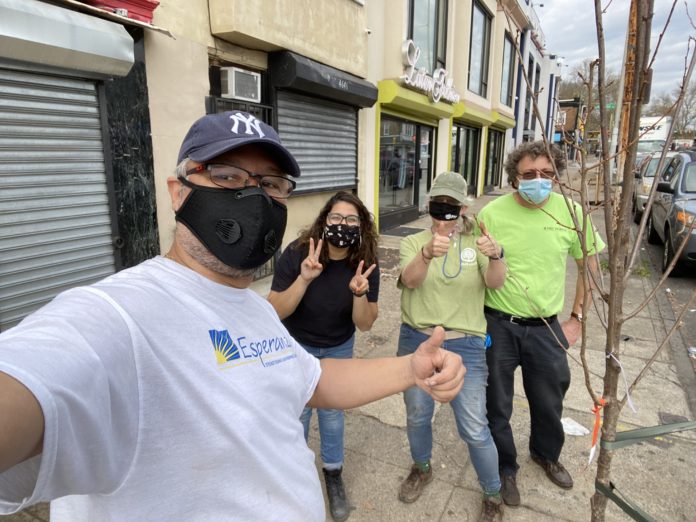The headlines about COVID-19 at the national level have become nothing short of dire. The dangerous combination of colder weather, holiday gatherings, and the general fatigue among the public for isolation and lockdown, has led to a public health crisis of much greater magnitude than at its peak in the summertime. Around 2,000 Americans are dying every day. Hospital systems are buckling again under the weight of the patient numbers. The economy is still crippled by shutdown orders, with businesses losing income and employees losing their jobs.
During this struggle, though, some neighborhoods are finding ways to move forward. In the Latino Quarter of North Philadelphia, including Hunting Park, Juniata, and Feltonville, residents are working together on projects that make the neighborhood better for everyone.
For several months over the summer, a Steering Committee comprised of neighborhood residents who are block leaders, nonprofit and community organization leaders, and local pastors, met every week to address the extreme heat. Resources for staying cool on hot days were available at emergency food distribution sites. Fans and air conditioning units were given to families whose homes were not equipped with any cooling features. Two members of the committee worked as “heat ambassadors,” going block to block to check on their neighbors, especially the elderly and families with small children or people with disabilities. The group also partnered with Drexel University and the William Penn Foundation to test outdoor block-level cooling structures that can be expanded in future years.
In early November, more than 50 volunteers came out to the Latino Quarter to help plant trees and grow the tree canopy in the neighborhood. They spent the day on Saturday planting 43 trees at sites across the neighborhood, abiding by safe practices like mask-wearing, sanitizing hands and tools, and wearing masks always. This planting day, sponsored by TD Bank and the Pennsylvania Horticultural Society, resulted in a record number of trees being planted in one day in the Latino Quarter.
The Latino Quarter business owners are managing the ups and downs of COVID-19 as well, in collaborative ways. Many restaurants shifted to focus on takeout and delivery and did not attempt outdoor dining. Thus, the return to stricter shutdown measures did not impact them as much as it otherwise could have, as other restaurants across the city experienced. Auto mechanics and other service providers found ways to continue operating safely within the city’s restrictions. And, in some cases, industry “affinity groups” are beginning to form, where businesses in the same sector are joining to discuss their common problems and try to develop solutions together.
During the latest period of civil unrest, following the shooting of Wallace Walter, Latino Quarter business owners pooled their resources to hire private security, and were able to avoid very serious looting and damage.
Roberto Rodriguez, the Commercial Corridor Manager at Esperanza, states, “Businesses like our barber shops and hair salons, who are especially hurting during the pandemic, are turning to each other for support and creative thinking about how to survive this time. We’re proud of the way the neighborhood has come together, and we think this will make us even stronger and more cohesive after we can return to something more like business as usual.”
Although everything can feel dark and difficult in these winter months, the most vulnerable neighborhoods are rising to the challenge, creating hope and inspiration for the city.







